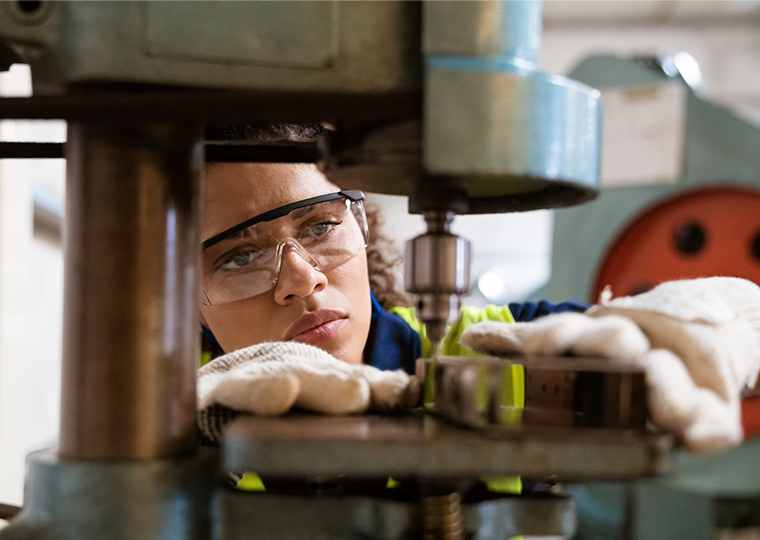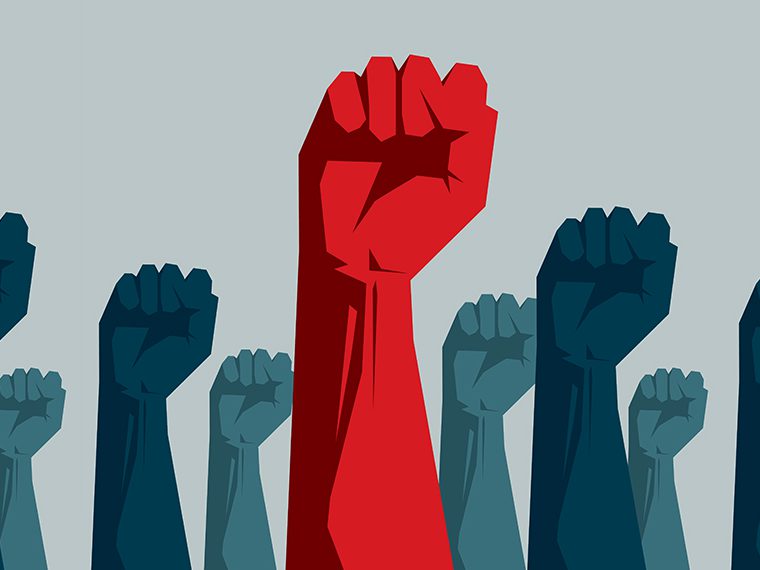Insurrection at U.S. Capitol led some Trump voters to surprising assessment
The notion that democracy is on the ballot in the 2024 U.S. presidential election is neither hyperbole nor fearmongering.
By objective measures, democracy in America is in decline. In 2017, after years of erosion in democratic norms, The Economist Intelligence Unit’s Democracy Index downgraded the United States from a “full democracy” to a “flawed democracy.” America’s score has continued to fall since then.
Americans seem well aware of that change. In fact, research has established that perceptions of democracy have a partisan bent. Supporters of the winning party are more apt to feel the state of democracy is in better shape than supporters of the losing party.
A paper published in Humanities & Social Sciences Communications explores whether the weakening of democratic norms alters the winners-believe-in-democracy calculus.
Bush, Obama, Trump
Analyzing survey data from recent U.S. elections, UCLA Anderson’s Margaret Shih and Gloria Danqiao Cheng, a postdoctoral scholar, together with Vrije Universiteit Amsterdam’s Serena Does, find that there is still fluidity to Americans’ sense of the state of democracy that depends on partisan affinity, despite U.S. democracy weakening.
During a stretch when markers indicated an eroding American democracy, party affiliation takes precedence over that fact. Republicans felt democracy was stronger during the George W. Bush administration. When Barack Obama was in the White House, Democrats were more optimistic. Republicans were again more on board with the state of democracy when Donald Trump was in office.
Yet Cheng, Shih and Does also unearth a potentially consequential nuance that suggests a limit — a constitutional crisis — to the partisan stronghold on opinions about the state of democracy.
In the aftermath of the Jan. 6, 2021, violence at the U.S. Capitol — the day Congress ultimately confirmed Joe Biden had won the Electoral College — a significant portion of Trump supporters broke with the script and didn’t report sharply lower scores when asked how democratically they thought the country was being governed. It seems that in the face of a blatant and extreme threat to democracy, some losers put country over party.
Viewpoint on Democracy on Five Dates
The researchers used CloudResearch, an online research platform to survey participants on their perceptions of democracy at critical junctures in the 2020 election cycle.
Participants shared their perception of the state of democracy one day before the election, one day after the election was called for Biden, one day after the Jan. 6 riot at the U.S. Capitol (and confirmation of Biden as the winner of the Electoral College vote) and one day after Inauguration Day. More than 325 participants completed all four surveys. A fifth survey was conducted 18 months after the inauguration; more than 250 participants completed all five surveys.
In line with past research, partisanship’s pull on one’s sense of democracy was indeed in play, but it wasn’t simply tied to the election being called.
As shown below, Trump supporters, who were already showing reduced confidence in the country’s democratic levels after the election was called, had another sharp leg down between the election being called and right after Jan. 6.
That the gap between winner and loser perceptions didn’t peak until after the inauguration, advances the understanding of how perceptions about the state of democracy play out. “Suggesting that the psychological boosts associated with winning do not fully kick in until after the official government transition,” the researchers write.
The large winner-loser gap post-inauguration was mostly a function of Biden supporters exhaling and feeling more hopeful about the state of democracy. The overall rating among Trump supporters didn’t change (drop) much after the violence.
And that could be a sign that when it comes to supporting/preserving democracy, there may be an opening to have a bipartisan conversation:
Cheng, Shih and Does find that after Jan. 6, Trump supporters didn’t respond as a monolith. Many Trump supporters indeed behaved as past research would suggest, seeing Congress’ confirmation of Biden as being bad for democracy. Yet the fact that the orange line didn’t budge much between Jan. 6 and the inauguration is because a significant subset of Trump supporters didn’t follow the standard script about how losing the election should make them feel (even more) concerned about the state of democracy.
Trump Supporters Separate Into Two Camps
The researchers asked all participants whether they thought the confirmation of Biden’s victory on Jan. 6 was good for democracy. All but one Biden supporter said the confirmation was good for democracy. The first graph maps perception of democracy (on a scale of 1-7) among Biden supporters relative to the subset of Trump supporters who said the confirmation was bad for democracy. As past research would predict, these Trump supporters after Jan. 6 felt democracy was much weaker.
But the other subset of Trump supporters said Congress following through on the confirmation was good for democracy. While their democracy rating fell slightly between the election being called and Jan. 6, this group was more upbeat about democracy than even Biden supporters after the riot, effectively telegraphing that they supported the transfer of power even though they lost the election.
Moreover, a year and a half later, while Biden supporters posted higher scores for the state of democracy than both subsets of Trump supporters, the gap is much smaller between Biden and Trump supporters who signaled the fact that Biden’s confirmation on Jan. 6 was good for democracy.
“They prioritize democratic principles over their own losing status,” the researchers write of this Trump subset. “This has important implications for identifying that at least partial collective bipartisan action to defend democracy can be possible during democratic crises.”
Featured Faculty
-
Gloria Danqiao Cheng
Management and Organizations, postdoctoral scholar
-
Margaret Shih
Interim Dean and Neil Jacoby Chair in Management; Professor of Management and Organizations
About the Research
Cheng, G.D., Does, S., & Shih, M. (2024). Partisan differences in perceived levels of democracy across presidential administrations. Humanities & Social Sciences Communications, 11(1), 1-10.






